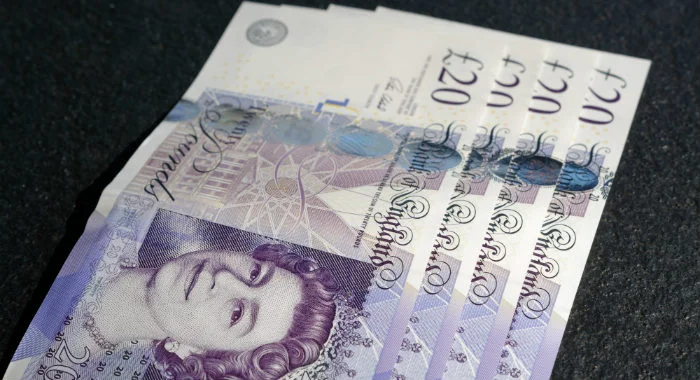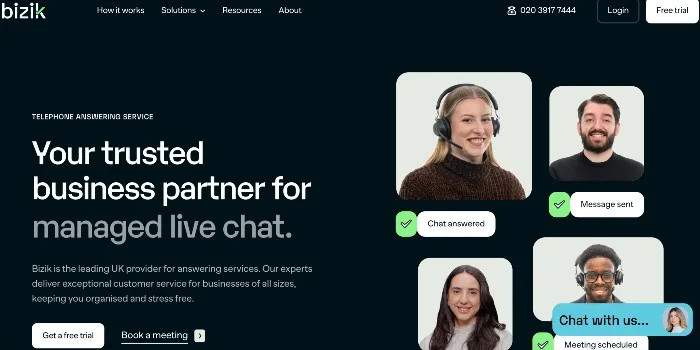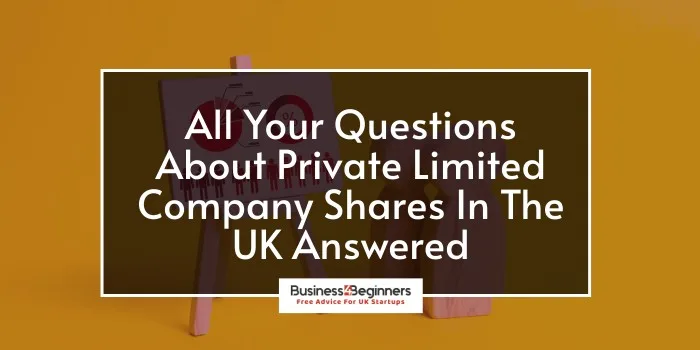In today’s digital age, all the content you need is available at the tap of a few buttons. Saving an image, embedding a video, or copying a piece of text has never been easier.
However, just because something is easy to do doesn’t mean it’s okay. Recently, several companies received a letter from a lawyer representing a photographer.
This lawyer asked for proof that certain photographs used on the companies’ websites—photographs taken by his client—were legally obtained. He threatened them with fines starting at 5,000 pounds if they refused to comply or were unable to show proof of purchase.
Scary stuff. Without knowing it, you could be at risk of copyright infringement for a photo in your weekly newsletter, the music on your website, or even some texts that you included in your business brochure. Or, it could be a few snapshots in the video presentation you prepared for a client.
Whatever you’re using, you need to ensure that you have the relevant licence for all the material you are using – or that it’s 100% copyright free. In this guide, we’ll go through the confusing world of copyright and detail how to avoid copyright infringement in the UK as a small business.
Steps to take to avoid copyright infringement
Avoiding copyright infringement as a small business is done in one of three ways:
- Make sure that you obtain correct and relevant licences for all the media that you’re using
- Only using content that is copyright-free.
- Make your own content
We’ll go into these paths in more detail, but the golden rule to remember here is:
“Just because it’s publicly available, doesn’t mean it’s free to use!”
Don’t assume that content like photos, music, or texts found on the Internet are free, mistakenly thinking that, since they are accessible to anyone, then they surely must be free!
All material published on the Internet is protected by the same laws which govern books, movies, and music.
Consequently, using a photo you downloaded from the Internet as your company’s Facebook page cover could infringe someone’s copyright. Even something as trivial as a photo shared on a business Facebook post could get you in trouble.
1. Get the right licence for your content

Before using a photo, a video or a text, make sure you have the appropriate licence. This will give you the right to reproduce or copy the material. Read carefully what sort of rights the licence grants you.
If you’re purchasing images from websites like Shutterstock, you are typically acquiring a non-exclusive licence that allows you to use the content for specific purposes. The exact terms can vary depending on the type of content and the specific licence option you choose.
However, in general, Shutterstock licences usually permit you to use the content for commercial and personal projects.
There could be caveats to your licence though, so it’s always best that you double-check before using it. For example:
- You might have the right to use the photo in electronic format but not in printed format. So, using it on your company’s website is fine, but putting it in your business leaflet or your company brochure is not.
- It might be for single use but not repetitive one. If you are planning on using a photo on all your company’s official material, including logo, website, Facebook page, and written presentation, then the copyright owner might demand more money in exchange for your right to use their photo.
A licence might not give you exclusive rights. The copyright owner might keep the right to use it too, or they might sell the rights to more prospective buyers. If you want an exclusive right to use it, you could be asked to pay a higher price for it.
Finally, you may want to consider whether you need a perpetual licence (i.e. one that you can use forever) or one that is limited to a specific amount of time.
Most software programs and other applications have standard licences and terms. However, many photos, texts, music scores, and other creations don’t. Perhaps the artist has not devised licences.
In that case, you need to get in touch with the copyright owner and ask for—written—permission to use their work. The copyright owner will determine the fee and use of their material.
Lost the buzz for your business?
Starting a business is exciting. Succeeding is rewarding. The bit between is hard, repetitive, and full of self-doubt.
The Lonely Middle Club (From Business4Beginners) helps you through it:
Get support and advice from other small business owners
Remove the self-doubt that’s holding your business back
Learn techniques and strategies to grow your business faster
Be inspired with our exclusive ‘swipe’ file and AI-powered tools
No pressure – work at YOUR pace, towards YOUR goals
—
2. Explore royalty-free material
If you can’t afford to buy every single photo you wish to use on your company social media or blog, then you can choose to go down the royalty-free route instead, which gives you access to content that’s freely available for anyone to use.
There are dozens of websites which offer royalty-free material such as photos or music.
Some examples include:
Always make sure that you have read what their licence covers. Sometimes, the artist asks to be credited (but does not ask for any money), other times you are free to use the photos in any way you want. In most cases, the material isn’t to be used for obscene, profane or insulting work.

3. Make your own content
One way to avoid the headache of content infringement is to use your own content. This means taking your own pictures, making sure that you write your own blogs, and not using any material that you haven’t made (or paid) for someone to make on your behalf.
Although this is a more time-consuming and potentially expensive route, it ensures that everything your produce is made exactly to your requirements. And on the plus side, you could also copyright some of this content yourself to prevent anyone else from using this material.
4. Keep employees in the loop
If you have any employees, it’s always best to spend some time training and informing your employees, co-workers, and colleagues about what they can use in their work and how to handle copyrighted material.
Explain to them the potential cost to the business but also the moral issues at hand. This could save you a lot of trouble in the future.
Exceptions to copyright law
Now that you know how to avoid copyright infringement in the UK as a small business, let’s talk about the exceptions.
The law has provided for some exceptions regarding the use of copyrighted material. Although we’d always recommend playing it safe, you are free to use material without worrying about copyright infringement if:
- You’re quoting someone, or using their material in a review. For example, if you’re making a blog about the top 5 games of the year, and you use a quote from their website, this is acceptable and fair use. However, even though the material used for reviewing a theatre production is copyright-free, using a photo taken by a photographer during the theatre performance will be covered by copyright.
- You’re reporting about an event.
- You’re using the material for educational purposes is also free of copyright. Suppose you are running a school or have non-commercial activities involving education and training. In that case, copyright law is much more flexible, as long as the material is used for these purposes solely and the designer of the original material is credited adequately.
If you’re ever unsure, always play it safe and choose the royalty-free option if available. It’s much better to do that than face a fine for violating copyright terms.
The cost of copyright infringement

If a copyright owner investigates your use of protected material, the Copyright Licensing Agency Limited (CLA) will forward the complaint to its compliance branch, Copywatch. Copyright infringement is usually a civil offence case.
The fines generally include financial costs, which are determined by the court depending on the case, the extent of the infringement, and the number of times the infringement occurred.
Fines could reach £50,000. You also risk up to 6 months of incarceration.
Moreover, you could end up paying statutory damages: these are paid when it is difficult to calculate the harm done to the plaintiff.
Remember that most copyright infringement cases are civil cases, not criminal ones. Although the damages in civil cases tend to be lower, the proof threshold is also lower and tends to be in favour of the plaintiff.
There can also be an out-of-court decision agreed between the copyright owner and the infringer.
Sometimes, the arrangement might include a simple purchase of a licence from the owner. In many cases, however, you could also end up paying their legal fees as well.
Business reputation matters too!
Bear in mind that, apart from a financial settlement, you might damage your business reputation. This might impinge on your future financial needs, for instance, if you need to get a loan from a bank. Also, ending up in court could damage your company’s name and image.
Again, this could have present and future implications regarding investment or business expansion. Imagine having a besmirched criminal record for your business; it just doesn’t look good. Obtaining a licence is the easiest and safest way of keeping your company’s good name.
Protecting your own material from copyright
If you decide to protect your business by producing your own content, you can use copyright infringement to your benefit by ensuring that no one can use your content for their own gain.
British law does not require someone to register their right to any original material they have created. Once a person has produced a creative effort, this is automatically copyright-protected and there is no need to submit it to an authority in order to acquire copyright-protected status.
Therefore, the moment an artist has taken a photo that you are planning on using on your business website, this photo is already copyright-protected.
Sometimes people accompany their original work with the copyright symbol ©, adding their name and the year they created that particular work. However, this is optional and does not mean that material which does not include the copyright symbol © is free to use.
When the law states that some work is copyrighted, it means that only the owner may copy it, distribute it, rent it, lend it, show it in public, or perform it. When using material without the owner’s consent, then there is copyright infringement.
The quantity of copyrighted material stolen is irrelevant: it can be just a sentence or a long text; a single photo or a series of snapshots. The legislation is more interested in the quality and importance of the infringement and the intrinsic value of the stolen material.
If one photo’s value is critical, then charges can be brought even for the infringement of that single photo.
Accordingly, don’t convince yourself that using ‘just a few snapshots’ will be immaterial. You could be in for a nasty surprise.
The duration of copyright protection varies according to the material; it ranges from 25 years for typographical work to 70 years after the artist’s death for literary works, music, and artistic products.
How to avoid copyright infringement in the UK as a small business: think before you use
Being found guilty of copyright will could result in nasty fines and damage your business reputation. Before you use any content that you’ve seen elsewhere, it’s always best to play it safe and fully understand if you can use it first.
The best way to avoid copyright infringement is to ensure that you purchase the correct licences, source royalty-free material, or develop your own in-house.
Whichever option you choose, by taking proactive steps to avoid copyright infringement, you can protect your business’s assets, maintain a positive reputation, and focus on growing your operations without the added stress of legal concerns.
Want more information on copyright in the UK? Read our FAQ about Patents, Trade Marks and Copyright here.







